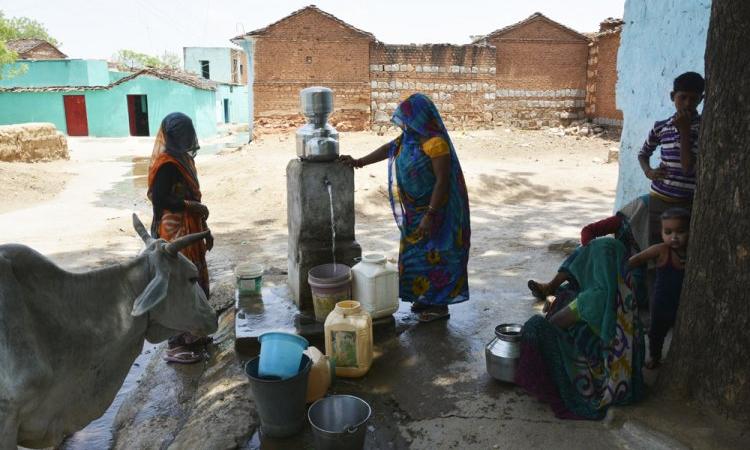
Under Jal Jeevan Mission, state to bear half the cost and local bodies to decide water charges
Under the Jal Jeevan Mission, all states except the North East and Himalayan states, will bear half the financial burden of the scheme. While the funding pattern for Centre and non-Northeast and non-Himalayan states will be 50:50, for the N-E and Himalayan states the funding pattern will be 90:10 and in Union Territories, the Centre will bear the full cost of the programme. Along with this, the Centre has allowed gram panchayats and local bodies to decide on water usage charges for supply of potable piped water under the mission. The government hopes that by giving full flexibility to local bodies to run the scheme, recovering the water charges from people would become easier. (The Economic Times, The Indian Express)
Delhi HC seeks action on complaints of irregularities in Polavaram project
The Delhi High Court has ordered the Ministry of Jal Shakti to consider the writ petition filed by economist and writer Pentapati Pulla Rao on the implementation of the Polavaram Irrigation Project (PIP) as a representation and take necessary action after duly hearing his plea on illegalities, corruption and deviations in the project execution. Also, the Court sought the Centre's response on why the Ministry was not taking action on the allegations, rejecting the argument over jurisdiction. As per the plea, Andhra Pradesh government officials increased the project budget from Rs 16,100 crore to Rs 58,000 crore without any consultation. (The Hindu)
Water grid project launched in Andhra
The Andhra Pradesh government has launched a statewide water grid project to provide drinking water connection to 46,982 rural area habitations and 99 urban area habitations by 2022. Under the water grid system, water from rivers and canals would be sent to reservoirs which would then supply it to households in about 110 urban local bodies. The estimated cost for the project, that will be executed under the Jal Jeevan and MGNREGA scheme, is Rs 46,675 crore. In the first phase Rs 37,475 crore is to be invested; in the second, Rs. 9200 crore will be invested. The project aims to cover the Rayalaseema region on a priority basis as it frequently reels under water scarcity. (The Indian Express)
To save its rice bowl, Kerala prepares a roadmap
The Kerala State Planning Board (KSPB) has prepared a roadmap worth Rs. 2447 crore to save its rice bowl, the Kuttanad region which is a huge area of reclaimed land spread over Alappuzha, Kottayam and Pathanamthitta. The region has been plagued with declining farm productivity, ecological destruction, poor water resource management systems, sanitation issues and back-to-back monsoon floods in the last two years. Under the new roadmap, Rs. 1,589.16 crore has been earmarked for water resources development, while Rs. 200 crores each have been set aside for agriculture, fisheries and drinking water supply. (Livemint)
Green ministry gives go ahead to Kochi water metro project
The Environment Ministry has accorded the environmental and coastal regulation zone (CRZ) clearance to Kochi Metro Rail Ltd (KMRL) for the Kochi water metro. With this, KMRL can now go ahead with the construction of boat terminals. However, the ministry has ordered them not to block creeks or rivers and to ensure the smooth flow of water in the project area. Rs. 747.28 crore has been sanctioned for the project which intends to introduce modern, energy-efficient, fast and environment-friendly boats at a high frequency to increase ridership. (The Times of India)
This is a roundup of important policy matters from October 9 - 15, 2019. Also, read news this week.